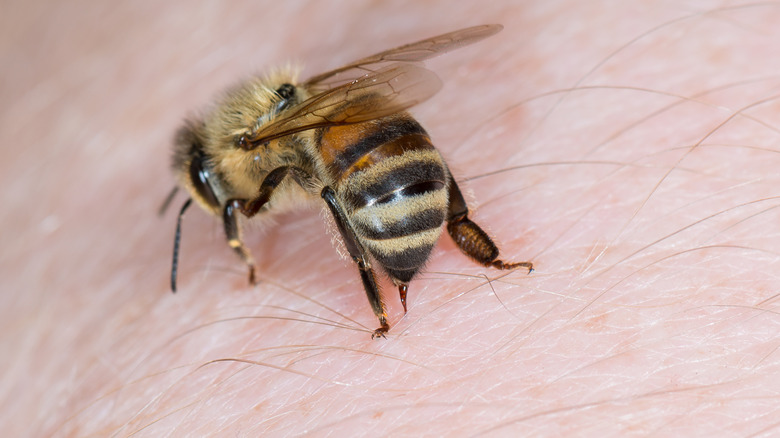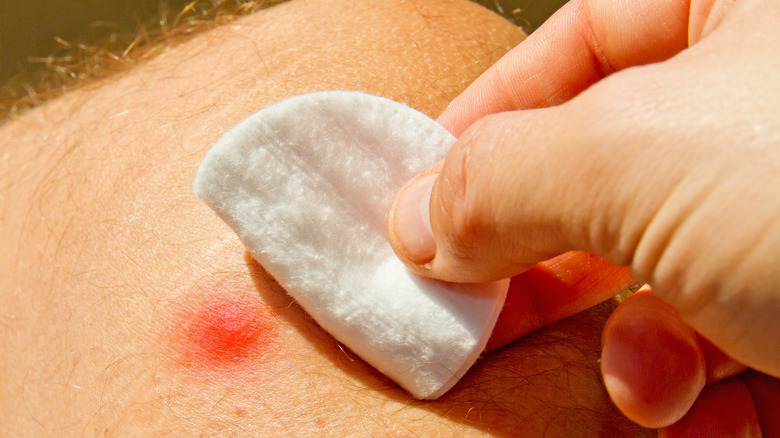How To Treat A Bee Sting
While most insects generally like to be left alone, bees will sting as a means of self-defense when threatened (via Wonderopolis). This painful sensation occurs when a bee punctures the skin with its jagged stinger and secretes venom known as apitoxin. Unlike wasps — who possess straight stingers — a bee's stinger can detach from the insect and remain lodged in our skin (via Healthline).
According to Everyday Health, certain factors can increase our chances of a bee sting, such as running barefoot through the grass or wearing colors that bees find attractive — particularly blue, red, or purple, writes bioinformatician Dr. Sam Westreich via Medium.
For some people, bee stings can prompt life-threatening allergic reactions. For those who are severely allergic, treatment options include immunotherapy injections, the use of an EpiPen, or if in the midst of an anaphylactic attack, emergency medical attention may be required (via Mayo Clinic).
If you're not at risk for a severe allergic reaction, here are some at-home tips for treating bee stings.
Avoid using tweezers to remove the stinger
The good news is that bees generally don't sting multiple times, according to The American Academy of Dermatology Association (AAD). However, if you're in close proximity to numerous bees, you'll first want to move a safe distance away. Your next priority will be to remove the stinger as quickly as possible to stop the discharge of venom. Rather than using tweezers, scrape over the sting site using the tip of your fingernail, gauze, or the edge of a credit card to avoid squeezing more venom into the skin (via Everyday Health).
Afterward, experts at the Mayo Clinic suggest washing the sting site with soap and water. Utilizing a cold compress or over-the-counter (OTC) medications can be helpful to alleviate pain or swelling. If you experience itching, Benadryl or applying hydrocortisone cream can help relieve it. If hydrocortisone cream isn't readily available, certified health and wellness expert Caleb Backe offers an alternative suggestion via Everyday Health, stating, "Honey contains anti-inflammatory properties, which means that it's a great home remedy for bee stings."
Be sure to monitor for any worsening symptoms, as dizziness, nausea, difficulty breathing, hives, or facial swelling can all indicate a need for medical attention (via AAD).


